Send Us Email
How to fix a leaking radiator in your home
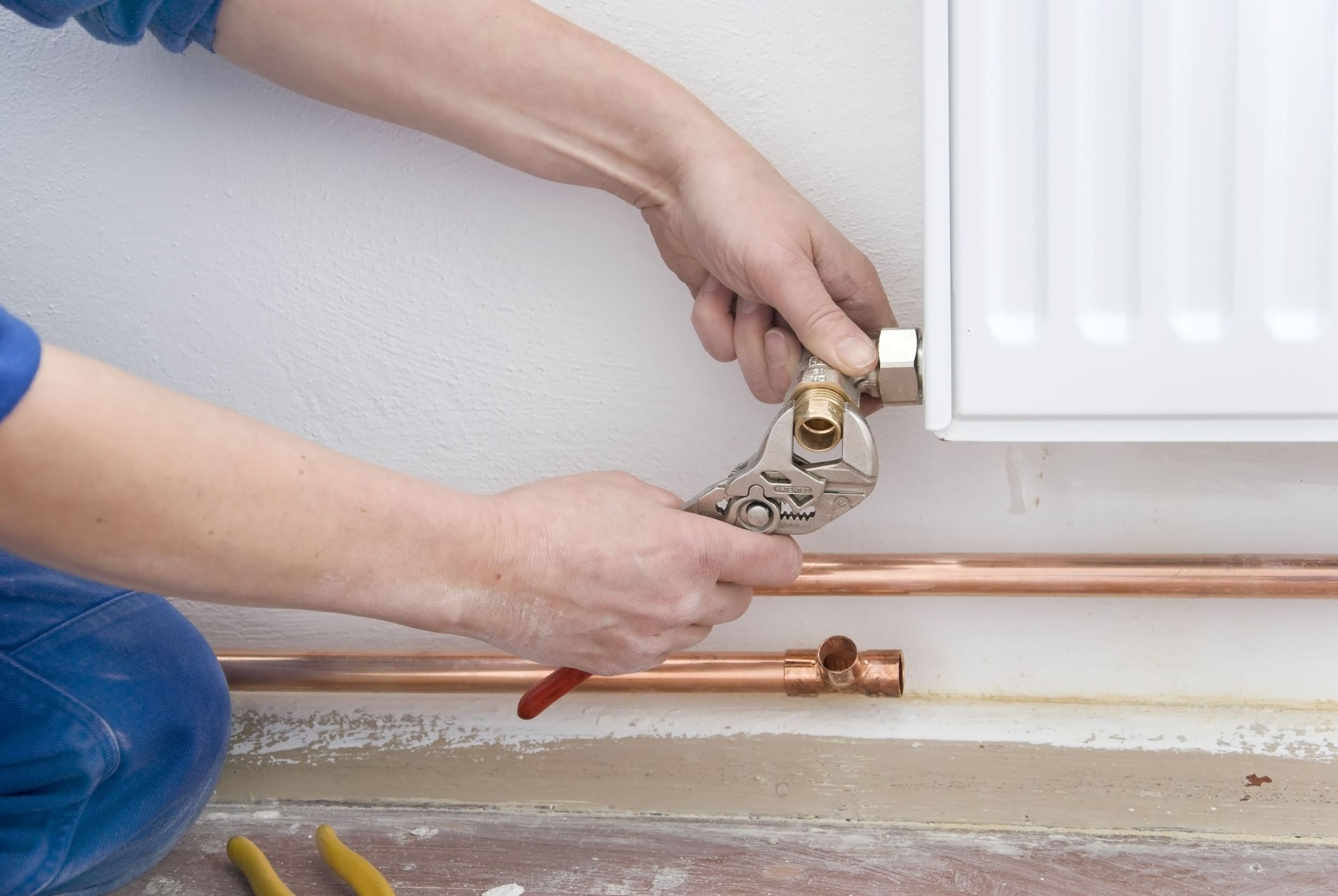
How to fix a leaking radiator in your home
Leaking radiators aren’t just an annoyance – they can also lead to significant water damage if left unchecked. A small puddle on the floor might seem harmless, but over time, leaks can escalate into costly repairs of your heating system or home interior.
Thankfully, fixing a leaking radiator is a task that many DIY enthusiasts and homeowners can handle themselves with the right guidance. Below, we’ve outlined a step-by-step guide to help you identify, drain, repair, and test your radiator. With our expert instructions, you’ll have your home warm and dry in no time.
Step 1: Identify the leaking radiator valve or connection
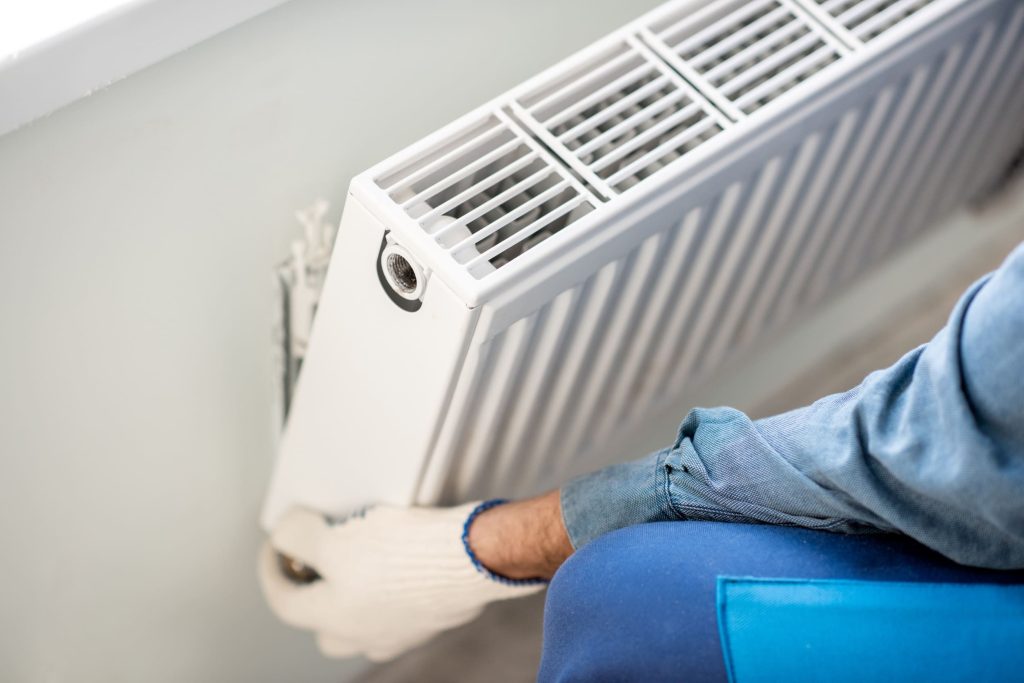
The first step in addressing a leaking radiator is to locate the source of the problem.
Leaking radiators are usually categorised in one of 3 ways:
- Leaking radiator valve spindle
- Leaking radiator connection
- Leaking radiator body
Here’s how to identify the location of the leak:
- Inspect for visible signs of leaks: Look for water marks, damp patches on the wall or floor, and rust spots. Often, these will give away the location of the issue.
- Dry your radiator: Turn off your radiator and allow it to cool down before drying it completely with a towel.
- Use the paper towel test: Run a clean paper towel over potential leak points (valves, pipe joints, and the body). If it gets wet, you’ve found the problem area.
Once you’ve identified whether you have a leaking radiator pipe, radiator valve leak or body leak you can decide on the appropriate fix.
Step 2: Turn off the radiator and drain it via the bleed valve
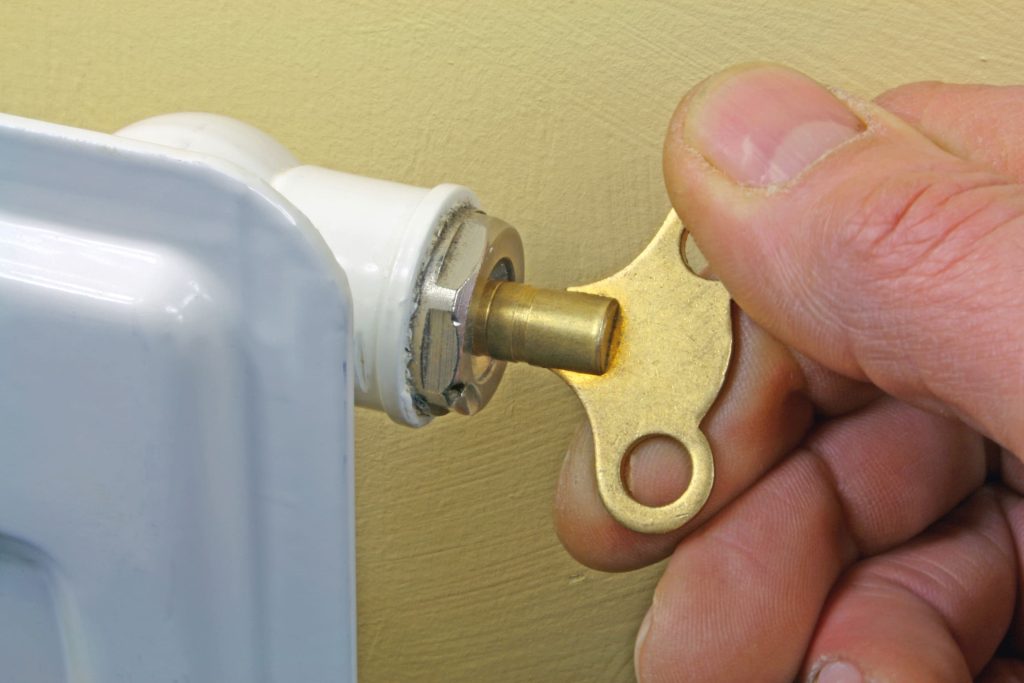
Before making any repairs, it’s essential to shut off the radiator and drain it to ensure safety and a clean work environment.
- Turn off your heating: Switch off your sealed central heating system to allow the radiator to cool completely. Never handle a radiator while it’s hot.
- Shut the valves: Close both the thermostatic radiator valve and the lockshield valve at either end of the radiator. If you’re unfamiliar with the valves, consult your heating system’s manual (generally one will look like a plastic cap, and the other will twist for temperature control)
- Drain the radiator: Place a bucket or tray under the radiator’s bleed valve to catch any excess water. Use a radiator key to open the bleed valve and release air, allowing the water to drain out from the radiator’s body.
Draining the radiator ensures there’s no residual water, reducing the risk of further leaking while you work.
Step 3: Fix the radiator leak
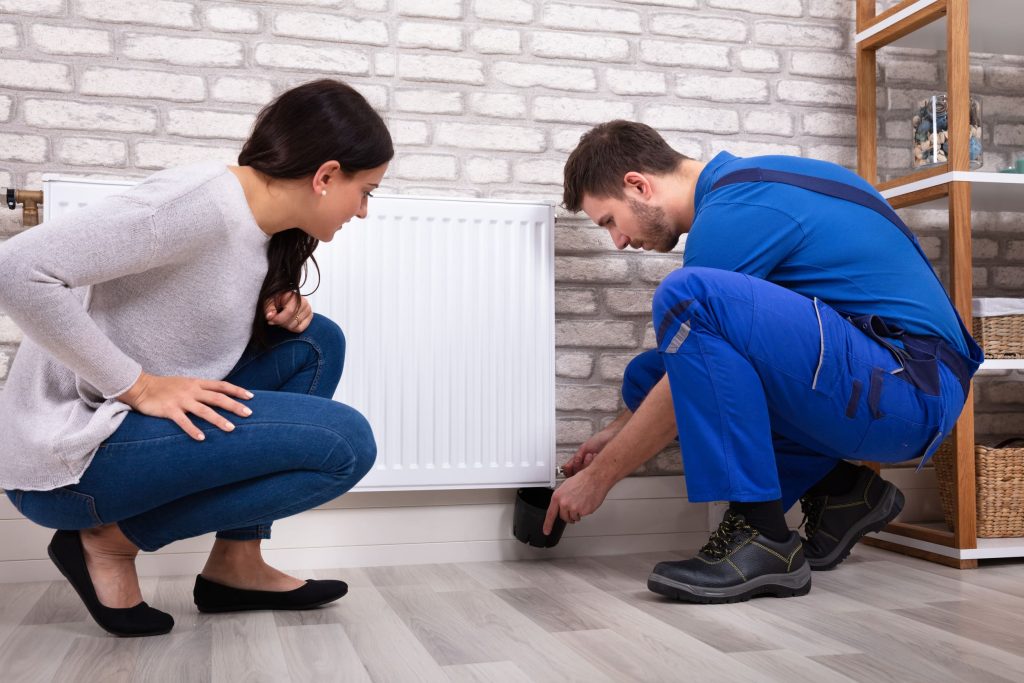
The method of repair depends on the type and location of the radiator leak. Below are the most common fixes and how to handle them.
Fixing a leaking valve
Valve leaks can occur due to loose connections or a deteriorated gland nut surrounding the spindle. Here’s what to do:
- Remove the radiator valve cap to reveal the gland nut and spindle.
- If the gland nut is loose, tighten it with a spanner.
- For damaged spindle packing, wrap PTFE tape around the valve spindle (accessible after removing the gland nut) and replace everything securely.
Fixing a leaking pipe joint or valve tail
Leaks where pipes or valve tails connect to the radiator often require additional sealing.
- Disconnect the radiator valve coupling nut or union nut of the leaking joint.
- Wrap PTFE tape around the threads of the leaking joint or existing valve tail (around the olive or pipe joint).
- Reattach and tighten the nut securely with a wrench or spanner.
Fixing a pinhole in the radiator body
Corrosion can cause small pinholes to form in the radiator. While a new radiator is often required, there’s a temporary fix you can apply.
- Use a radiator leak sealer (for central heating systems) or an epoxy sealing solution for standalone radiators. Apply the solution as instructed to seal the pinhole and prevent water loss.
Temporary fixes should be followed up by consulting a professional plumber to replace or repair the radiator entirely.
Step 4: Refill the radiator and test
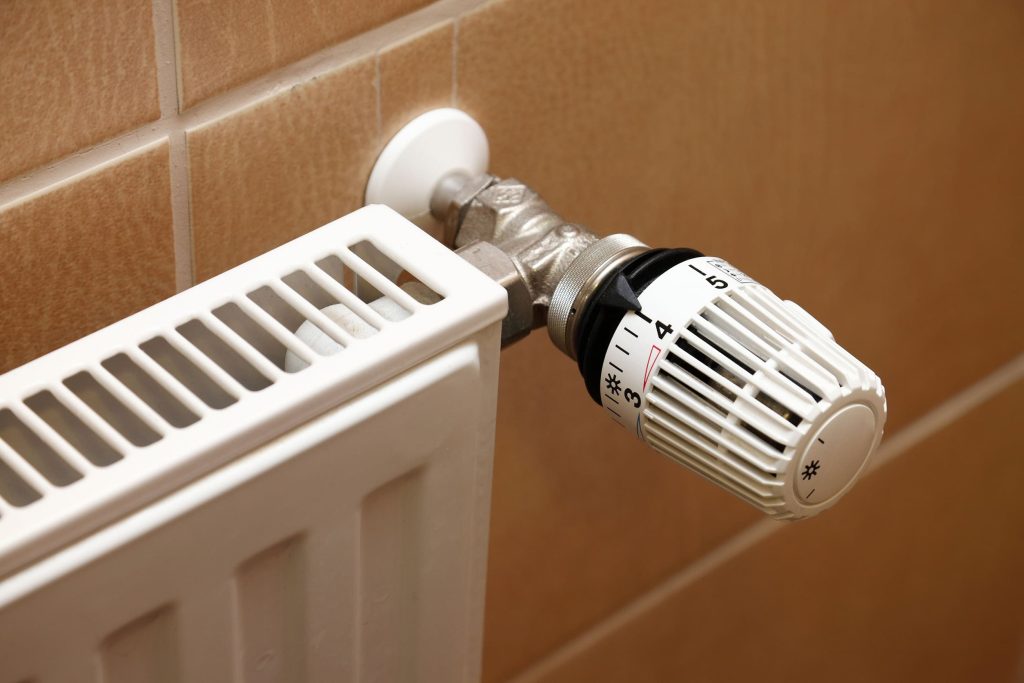
Once repairs are complete, it’s time to test the radiator to ensure the leak is resolved.
- Close the bleed valve: Tighten the bleed valve that was opened during draining.
- Open the radiator valves: Reopen both the control valve and lockshield valve to allow water to flow into the radiator. Gradually refill the radiator.
- Bleed any excess air: Use your radiator key to slowly release air trapped in the system until water begins to flow.
- Test for leaks: Turn your heating system back on and carefully monitor the radiator for any signs of further leakage.
If the radiator heats evenly and there’s no more water pooling, congratulations – you’ve fixed your leak and you now know how to fix a leaking radiator!
When to seek professional help
While many radiator leaks can be resolved with a little time and effort, some require an expert touch. You should call in a professional plumber if:
- The leak persists despite attempted repairs.
- You’re dealing with extensive corrosion or multiple pinhole leaks.
- The radiator system requires parts or replacements you’re unsure how to handle.
An experienced professional, like the team at DWM Plumbing & Heating, will ensure your radiator is fixed correctly – avoiding unnecessary complications.
Frequently Asked Questions
How long do radiators typically last before they need replacing?
Radiators usually have a lifespan of 10 to 20 years, depending on maintenance and water quality. Getting them serviced regularly and using corrosion inhibitors can prolong their lifespan.
Can I fix a leaking radiator in an emergency situation?
Yes, if you spot a severe leak, turn off the water supply and central heating at once. Place towels or buckets to catch excess water. If unsure about the repair, call a professional immediately.
How can I prevent radiator leaks in the future?
Regular maintenance is the best way to prevent leaks. This includes checking for rust, tightening connections, and using inhibitors in central heating systems to reduce corrosion.
Choose DWM Plumbing & Heating for peace of mind
Fixing a leaking radiator is a straightforward process for most homeowners, but it’s critical to get it right to avoid larger issues later. Regular radiator checks can go a long way in preventing leaks and ensuring your heating system runs smoothly.
If you need expert advice or professional help with a leaking radiator or other plumbing concerns, the trusted experts at DWM Plumbing & Heating are here to help. Get in touch with us today for reliable solutions tailored to your home.
